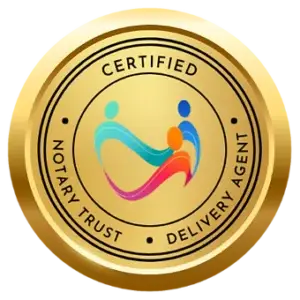
Benefits of Using a Notary for Power of Attorney
A power of attorney (POA) is a legal document that grants someone else the authority to act on your behalf in financial or legal matters. Notarizing a power of attorney document can offer several benefits, including legal validity, fraud prevention, and peace of mind for all parties involved.
Legal Validity
One of the primary benefits of using a notary for a power of attorney is ensuring the document’s legal validity. A notary public is an impartial witness who verifies the identity of the person signing the document and ensures that they are signing it voluntarily. By notarizing the document, the notary certifies that the signature is genuine and that the document meets all legal requirements.
Notarized power of attorney documents are more likely to be recognized by courts and other institutions. This can be especially important if the power of attorney is being used to make decisions about the grantor’s (the person granting the power) financial or medical care. A notarized document provides a higher level of assurance that the document is valid and legally binding.
Preventing Fraud
Another key benefit of using a notary for a power of attorney is the prevention of fraud. Notaries are trained to detect signs of coercion or fraud and can refuse to notarize a document if they believe it is not being signed voluntarily. Additionally, notarization requires the signer to present valid identification, which helps verify their identity and reduces the risk of unauthorized or fraudulent actions.
Notarization adds an extra layer of security and credibility to the document, making it less likely to be challenged in court. This can help protect the grantor’s interests and ensure that their wishes are carried out as intended.


Want to Learn More? Contact Pryor Mobile Notary Today !
Peace of Mind for All Parties
Using a notary for a power of attorney can provide peace of mind for all parties involved. For the grantor, knowing that their document is legally valid and secure can provide reassurance that their wishes will be carried out as intended. For the agent (the person receiving the power of attorney), having a notarized document can provide confidence that they have the legal authority to act on behalf of the grantor.
Notarization can also benefit third parties, such as financial institutions or healthcare providers, who may require a power of attorney to be notarized before accepting it. A notarized document is more likely to be accepted and trusted, simplifying transactions and ensuring that the agent’s authority is recognized.
In conclusion, notarizing a power of attorney document can offer several benefits, including legal validity, fraud prevention, and peace of mind for all parties involved. If you are considering creating a power of attorney, it is advisable to consult with a notary public to ensure that your document meets all legal requirements and is properly executed.



